An enormous amount of valuable rock music was performed on BBC radio in the decade or so after the Beatles’ first session in March 1962. Fortunately tapes of much (though far from all) of it survive, varying in fidelity from superb to lo-fi tinniness that seems to have resulted from putting a home recorder next to a radio speaker. Also fortunately, many BBC tapes have come out on official releases, and many others have unofficially circulated.
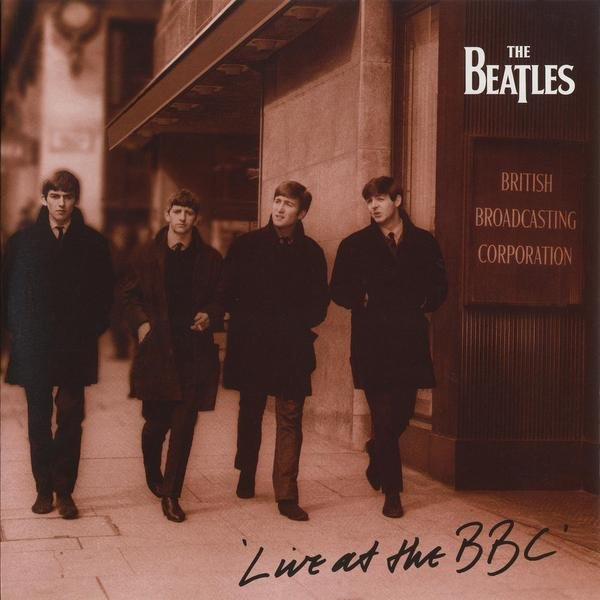
While BBC performances were often live renditions that differed little from the studio versions, there were more interesting supplements to an act’s official discography if they were adventurous. Prime among those were opportunities to do songs that weren’t on their studio releases, often cover versions of material by other artists, less often original compositions that somehow didn’t make it onto commercial product. Yet less frequent were arrangements of songs from albums, singles, and EPs that different substantially from their studio counterparts, and in fairly rare instances were actually superior.
This post isn’t a survey of the noteworthy BBC recordings from the time; it would take several books to cover those. Instead I’m citing the three acts that I think took most advantage of the format, along with a few instances that come to mind where radio versions outdistance the studio ones.
There’s heavy competition for judging the best BBC practitioners, especially since almost every British act of note did at least an album’s worth of sessions, and often several albums worth of sessions. For me, there are three clear winners, two of whom were among the biggest acts of all time, and a group who weren’t, although they’re pretty well known.
At the top of the list, as they were for so many things, are the Beatles, even if their sessions were limited to 1962-65, and the bulk of those took place in 1963. Their BBC output’s hardly a secret; there are two official double CDs, a bunch of tracks on an iTunes download comp of previously unissued 1963 material, and plenty of cuts that circulate unofficially, even if those are usually different versions of tunes that are now officially available in different BBC takes. There’s even a big book about their BBC sessions, The Beatles: The BBC Archives, though like many works of its kind, it was disappointingly short on description and background info on the actual performances. It might come as a surprise to some chroniclers, but the music is actually the reason most fans care about this stuff.
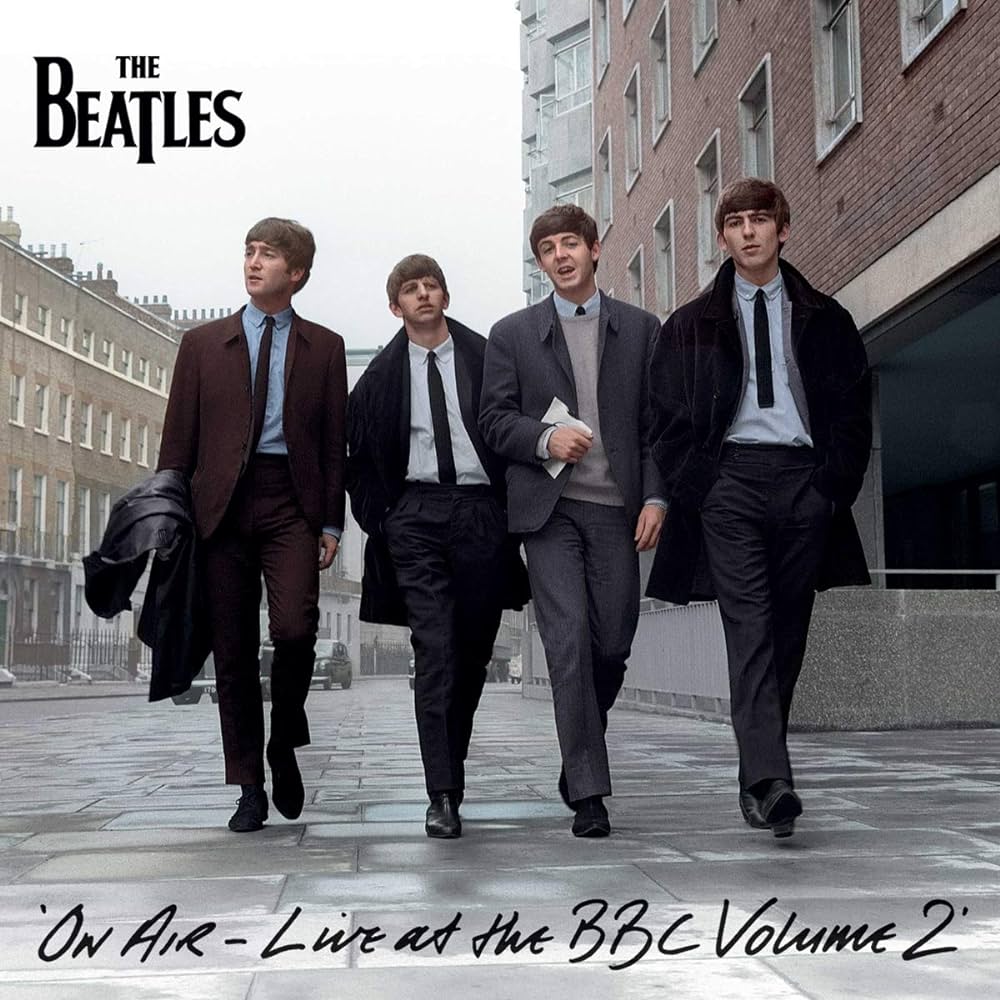
The Beatles did more than 50 sessions, 40 in 1963 alone. These included 275 tracks and 88 songs (many done more than once), three dozen of which (all but one covers) are not on their studio releases. At the risk of immodestly, I’ll note I describe all of their sessions in my book The Unreleased Beatles: Music and Film. Their greatest value are the 35 covers not on their studio records, many of them terrific, and virtually all of them worthwhile. These not only prove their versatility and illustrate their influences. Especially in 1963, they did so many sessions, and put such a varied repertoire into their sets, that I think they might have been an underrated influence in how quickly and constantly they improved as a band.
Here I’ll focus on how they treated their original material. While almost always energetic, they didn’t rearrange or redefine their original compositions (all by John Lennon and Paul McCartney on their radio sessions) to a notable degree. There’s just one I’d contend might be better than the studio version. This is “Thank You Girl,” as done on June 19, 1963. It’s simply appreciably zestier than the familiar track from the B-side of “From Me to You,” Ringo really pounding the drums, and John lets loose with some fierce screams not heard at all on the 45. True, it’s missing the harmonica that’s a prominent part of the original arrangement, as the instrument was on numerous early Beatles releases.
There are some other instances where the Beatles did something a little different on the BBC renditions of their compositions, though not in ways that made much of a difference. The June 17, 1963 “P.S. I Love You” ends with a nice melancholy chord that’s not part of the single. The January 7, 1964 “I Wanna Be Your Man” has a bit of Bo Diddley in the rhythm and some reverb on the guitar. On their final BBC session on May 26, 1965, Lennon changed the lyrics of “I’m a Loser” to “beneath this wig, I am wearing a tie.”
But the Beatles were not ones to jam or monkey around with what admittedly worked very well to begin with. They did sometimes mildly tinker with cover versions that made it onto their studio records. The sadly incomplete January 16, 1963 performance of “Chains” has some background harmonies on the bridge not heard on the Please Please Me version. The instrumental break on the June 24 “Roll Over Beethoven” is twice as long, with some wild staccato George Harrison riffing and very well recorded McCartney bass. John, and not Ringo, sings “Honey Don’t” on the August 1 session.
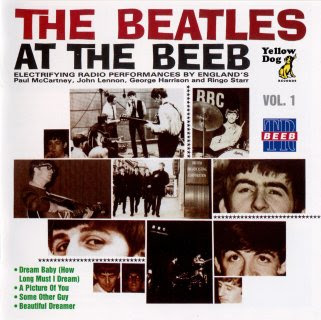
Most top British groups didn’t attempt original songs on the BBC that never wound up on their records, and the Beatles weren’t an exception. There was one interesting exception when they did a nice version of “I’ll Be On My Way” on June 24, 1963 that easily surpassed the one that had appeared on the B-side of Billy J. Kramer’s first single. Since there were a good number of Lennon-McCartney songs the Beatles “gave away” to other artists and didn’t attempt in the studio, it begs the question why they didn’t do other leftovers for the BBC.
It’s not a question so serious to keep even Beatles fanatics up at nights, but I’d think they weren’t too passionate about most of their giveaways, although it would have been nice to hear them try “Bad to Me” or “World Without Love” (sketchy demos of both do circulate, “Bad to Me” as part of the iTunes-only 1963 comp). Also, some of those giveaways were written very early in their career, sometimes before they had a recording contract. Maybe they weren’t interested in revisiting lesser efforts from their publishing catalog. They did try “Hello Little Girl” at their very first BBC session (with Pete Best still on drums) on March 7, 1962, but it wasn’t broadcast and a tape doesn’t survive, although at least the one from their January 1 Decca audition does.
Other than the Beatles, the group that best took opportunities to do covers not on their records might be a surprise to some people, since they didn’t have big hit records. That was Fairport Convention, who in the late 1960s sort of specialized in obscure cover versions, though they were also writing their songs from the beginning of their career on disc. So wide was their repertoire that quite a few weren’t on their three late-’60s LPs. About half of their four-CD Live at the BBC box is from sessions between December 10, 1967 and September 27, 1969, during which they offered more than a dozen covers not found on their albums and singles.
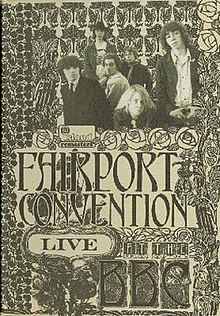
These aren’t only of interest to Fairport Fanatics. Some of the songs are among the best things they ever did. In particular, the Leonard Cohen standard “Suzanne” has some thrilling back-and-forth lead vocal tradeoffs and harmonies between Ian Matthews and Sandy Denny. I’d say “Tried So Hard” outdoes the Gene Clark original, as does their treatment of Eric Andersen’s “Close the Door Lightly When You Go,” due in large but not sole part to their stellar vocal harmonies. Also very fine are Richard & Mimi Fariña’s “Reno Nevada,” the well-harmonized arrangement of Johnny Cash’s “I Still Miss Someone,” and their bouncy takes on the Everly Brothers’ “Gone, Gone, Gone” and “Some Sweet Day”—neither of them too well known in their original guises, though “Gone, Gone, Gone” was a medium-sized 1964 US hit for the Everlys.
Although Fairport did put Bob Dylan’s “Percy’s Song” (an early-’60s Dylan outtake not released by the singer-songwriter himself until the mid-1980s) on their 1969 Unhalfbricking album, the epic BBC version outdistances it, especially in respect to Denny’s spectacular vocal. If there’s not as much to note about the covers of Cohen’s “Bird on a Wire” and Jackson C. Frank’s “You Never Wanted Me,” they’re very good too.
Some of the originals Fairport covered were quite obscure, especially in the UK, where some of the albums on which they appeared would have been very hard to find. Some of the material hadn’t even been issued at all in any versions. When I asked Ian (now Iain) Matthews about the wealth of cover versions Fairport did, he commented, “We were quite fortunate really, because in [their producer] Joe [Boyd] and his direct link to Warners at the time, we had a private source to whatever American material we wanted. He was responsible for many of our early influences. Were it not for him, I may not have listened to Moby Grape or Buffalo Springfield for quite some time. Joni Mitchell too, Joe had a direct line to her publishing demos and supplied us with whatever we could handle. I’m sure the Joe pipeline was how Sandy got ‘Who Knows'[Where the Time Goes] to Judy Collins.”
Fairport’s February 9, 1969 session offered one especially noteworthy bonus—an original not included on their studio releases. Not only that, an original by guitarist Simon Nicol, who seldom wrote any compositions whatsoever. The song, “Shattering Live Experience” (the title is not part of the lyrics), was a quite worthy, wistfully bittersweet tune with typically superb male-female harmonies that would have sat well on any of their first three albums. As I was puzzled as to why it wasn’t used on a vinyl record or indeed why Nicol didn’t write more, I asked him about it around the early 2000s.
“I certainly wasn’t writing, and I never have done,” was his response. “I was kind of reluctant to be drawn into that field, and ‘Shattering Live Experience,’ it’s a toe in the water. And I decided that the water was too cold,” he laughed. Dare I say I wish he’d tried to write more, but that wasn’t to be, and after the group dove whole-hog into far more British traditional folk-oriented material, they wouldn’t write or cover much such straightforward folk-rock songs anyway.
Long before BBC tracks were officially released by countless acts to embellish their discography (and some would say to exploit interest by completists determined to get everything once the official catalog was exhausted), a member of Fairport recognized the importance of their BBC output. A cassette with thirteen of the best BBC tracks came out in 1976 and was, according to the Mainly Norfolk site, “privately circulated by (Fairport ’60s bassist) Ashley Hutchings and could be purchased at Fairport gigs.” With nearly identical tracks, an official 1987 LP titled Heyday finally made most of the material from the cassette available. A 2002 CD version of Heyday added eight tracks, though only one of these, “You Never Wanted Me,” was a late-’60s version of a song that didn’t make their official studio releases.
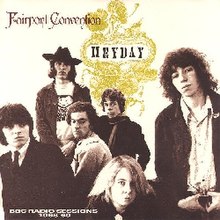
Now we’re up to four CDs with 2007’s Live at the BBC, though about half is from the first half of the 1970s, and of much less interest for me. The songs not on previous versions are generally decent, but not quite up to the level of what was on Heyday in musical quality, and sometimes not in sound quality. The extras still testify to their appetite for eclectic cover versions that wouldn’t fit onto their conventional releases, such as Joni Mitchell’s “Marcie” and “Night in the City:’ Bob Dylan’s “Lay Down Your Weary Tune,” Dino Valenti’s “Let’s Get Together,” and Eric Andersen’s “Violets of Dawn.”
The third group I feel made the most of their BBC sessions were Pink Floyd, who recorded a wealth of them in the first five years or so of their recording career. Fortunately many of them were officially issued on the Early Years box, even if that cost a small fortune.
The Floyd’s extensive BBC catalog would be worthwhile if only for the performance of two Syd Barrett originals, “Vegetable Man” and “Scream Thy Last Scream,” that were never on official releases during the original leader’s brief but brilliant stint in the band. Studio versions of both (with Barrett still on board) are on that box too, but it was quite bold of the group to present them for BBC broadcast, especially as they—even at the time, not just in retrospect—are disturbing reflections of Barrett’s alarmingly more disturbed mental state. While the BBC versions aren’t too different than the studio outtakes, and the studio versions have expectedly better fidelity, certainly they are valuable pieces of the Pink Floyd-Barrett canon.
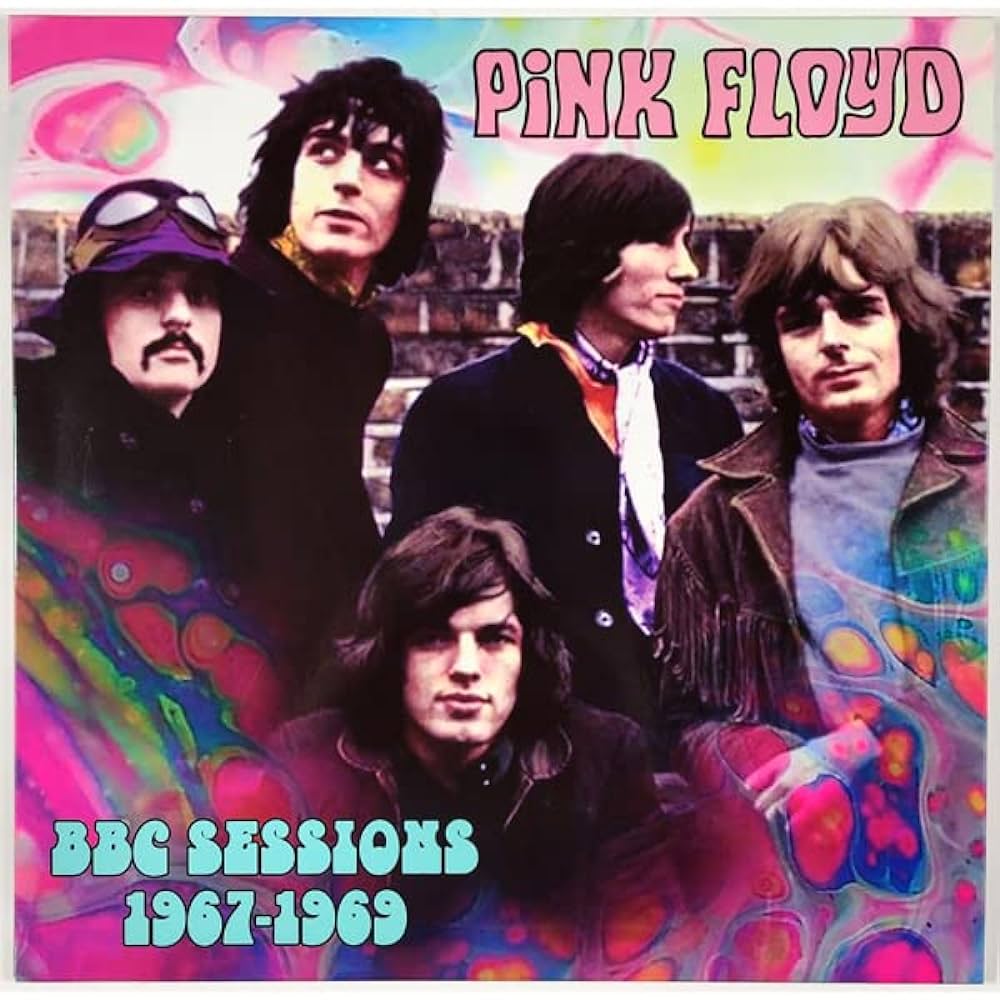
While Pink Floyd often varied from the studio versions in interesting ways on both their BBC sessions and in live performance in general, there weren’t many BBC arrangements that virtually reinvented the song. One glorious exception is their downright explosive nine-and-a-half-minute version of “Interstellar Overdrive” from their December 20, 1968 session. As I wrote in a review of the box for Flashback, It’s a stupendous arrangement that’s different from the studio version and every other circulating performance, with some wrenched-from-the-bowels-of-the-earth organ swirls by Wright and a dramatic mid-section where the band suddenly vamps on tense, urgently ascending chords, alternating dramatically with space-piercing guitar pings and yowls. When the band returns to the main motif at the end, it’s with a grandiose finality that’s impossible to follow.” Even though this was done without Syd Barrett, David Gilmour having come into the lineup for good in early 1968, this is simply the best performance of the song. It’s too bad it’s slightly lo-fi and obviously not from the original tape or a vinyl transcription disc, but that’s a pretty minor drawback.
Another BBC cut that varies from, and is arguably superior to, the familiar studio track, is the May 12, 1969 version of “Granchester Meadows.” This benefits from Gilmour’s high harmony vocal on the choruses and “BBC sessions songbirds” sound,but it’s a gorgeous arrangement, and the superb harmonies different from those heard on Ummagumma. Less markedly different, but still arguably superior to the studio counterpart, is a 25-minute version of “Atom Heart Mother” with choir, cello, and brass ensemble that outdoes, at least in my view, the side-long cut that served as the title track to the album of the same name.
You could make the same case for “One of These Days” and a 26-minute “Echoes.” These are at the very least as good as the Meddle versions. Indeed, the best Floyd BBC performances generally are a match for or better than the ones recorded at EMI, with a somewhat looser and less self-consciously polished air. You can also throw in a fifteen-minute “Fat Old Sun” as a less striking yet substantially different BBC offering, and the BBC “If,” overlooked next to the epics that dominated their early-’70s repertoire, has a nice subdued, almost ginger feel.
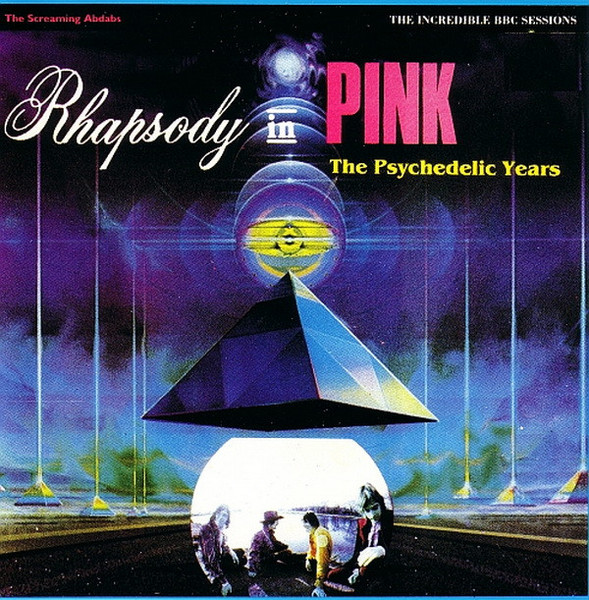
Incidentally, when I saw Pink Floyd drummer Nick Mason talk about his book Inside Out: A Personal History of Pink Floyd almost twenty years ago, he said there weren’t any plans to put out previously unreleased material by the band, even implying there wasn’t anything of enough interest to merit vault excavation. About ten years later, obviously the band had changed their tune, whether because of a realization that money was to be made by its official release, a sincere reevaluation of its quality, or both. Whatever the cause, it’s good there was a change of heart, since these aren’t just neat supplements to their core catalog, but in some cases absolutely essential ones.
An honorable mention of sorts can be given to Fleetwood Mac when Peter Green was their main guitarist, singer, and songwriter. They did a wealth of BBC sessions between 1967 and 1970, including many covers, and some originals, not on their studio releases. A lot of them are on the double CD Peter Green’s Fleetwood Mac Live at the BBC, but even that set, with 35 tracks, doesn’t contain many of the ones they did for BBC radio. Of the ones that do have studio counterparts, they often varied them pretty markedly. Some of them aren’t easily available even via unofficial means, including quite a few detailed in Richard J. Orlando’s three-volume Love That Burns, which exhaustively details Green’s work in the 1960s and early 1970s, most of it done with Fleetwood Mac.
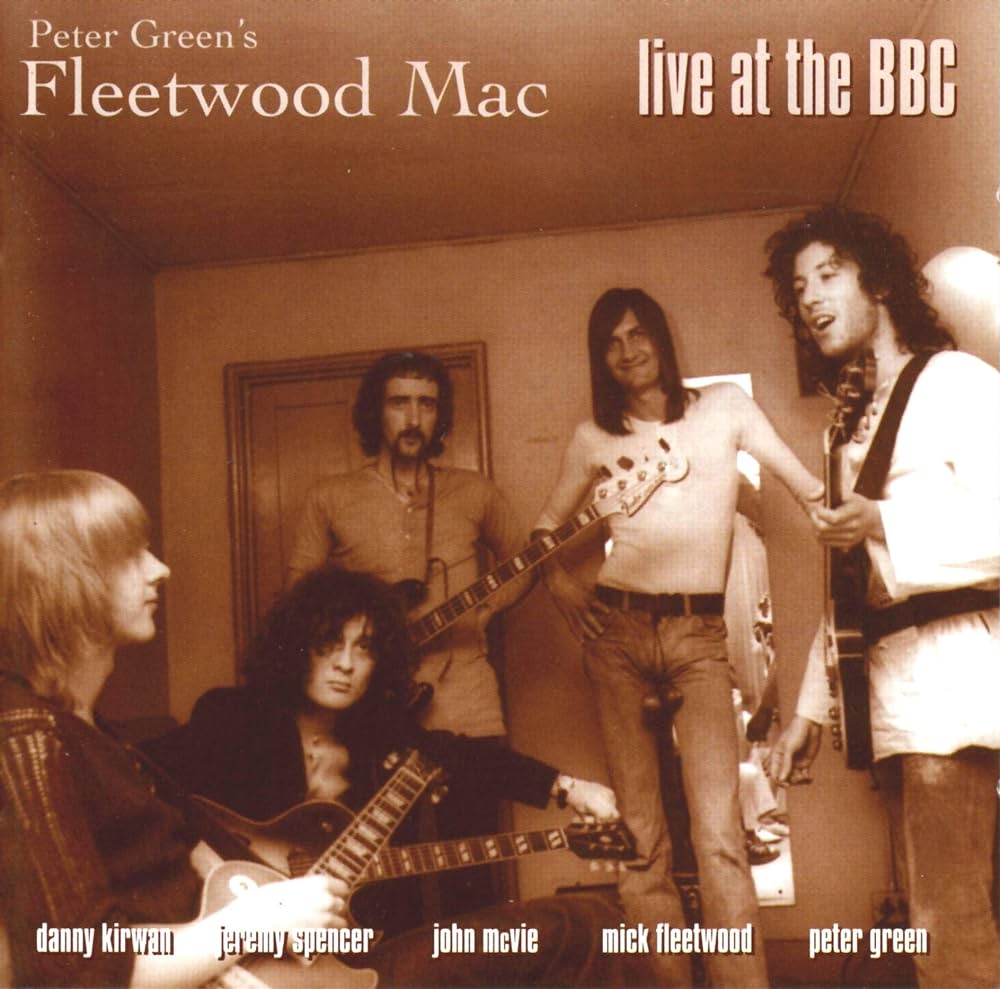
A few others are on the unofficial compilation The Complete Unreleased BBC Anthology 1967-1968. Even as just a nineteen-song collection of what else is out there, this has some fine music, sometimes of material not found elsewhere. This is detailed in my blogpost on the recordings, but they include good versions of B.B. King’s “Sweet Little Angel,” “Mean Old World,” and Muddy Waters’s “You Need Love” (part of which is the basis of Led Zeppelin’s “Whole Lotta Love”). Unexpectedly worthwhile is the Jeremy Spencer-helmed “Psychedelic Send Up Number,” which is exactly what the title says it is, and is quite funny. There are also some ordinary and subpar covers and oldies, but those songs alone would make for worthwhile additions to the group’s official discography.
There were other instances in which a BBC performance clearly outshone or differed from the studio version, some of them quite obscure. I’ll detail some of the most notable ones in my next post.